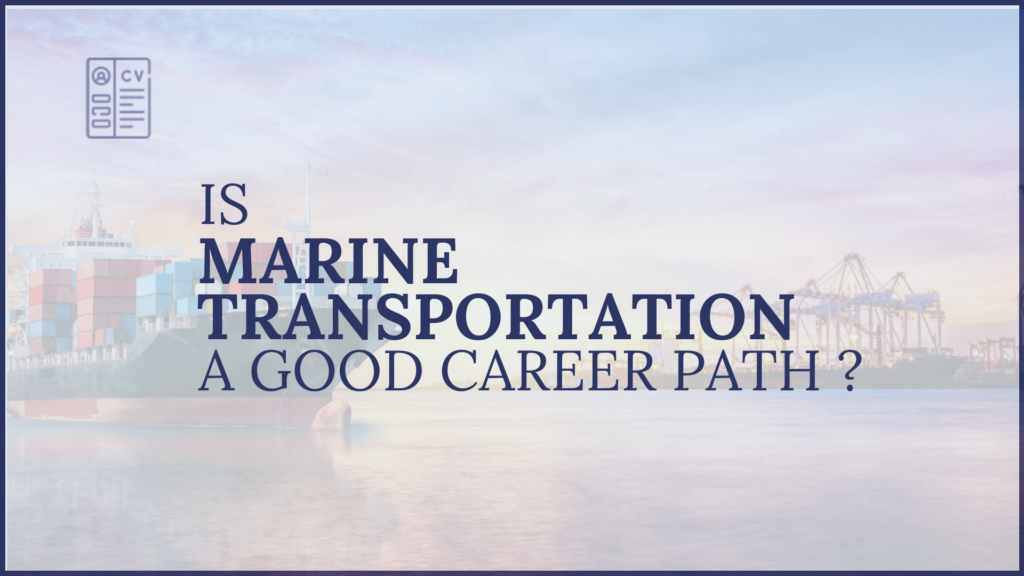Are you considering a career in marine transportation? From the thrill of navigating the open sea to the responsibility of transporting goods safely and efficiently, a career in marine transportation can offer a unique and fulfilling experience. However, before you embark on this career path, it’s important to weigh the risks and rewards to determine if this career the right fit for you.
Marine transportation offers the opportunity to work in an exciting and dynamic environment, where no two days are the same. However, it also comes with its challenges and dangers, such as unpredictable weather conditions and the potential for accidents at sea. Before committing to this career, it’s crucial to carefully consider the physical and mental demands it entails, as well as the potential for long periods of time away from home. Ultimately, a career in marine transportation can be immensely rewarding for those who are passionate about the ocean and have a strong sense of adventure, but it requires careful consideration and preparation to navigate the path to success.
Key Takeaways:
- Growth Opportunities: The marine transportation industry offers ample opportunities for career advancement and personal growth, especially for individuals looking for a dynamic and challenging career path.
- Global Reach: With the majority of global trade being transported by sea, a career in marine transportation provides the opportunity to work on a global scale and interact with individuals from diverse cultural backgrounds.
- Hands-On Experience: Those pursuing a career in marine transportation can gain valuable hands-on experience and expertise in operating and maintaining various types of vessels and equipment.
- Job Security: The demand for qualified professionals in the marine transportation industry is expected to remain steady, providing a sense of job security and stability for those seeking a long-term career in this field.
- Industry Reputation: With a focus on safety, innovation, and sustainability, the marine transportation industry offers a reputable and rewarding career path for individuals passionate about the maritime sector.
Understanding Marine Vehicles and Vessels
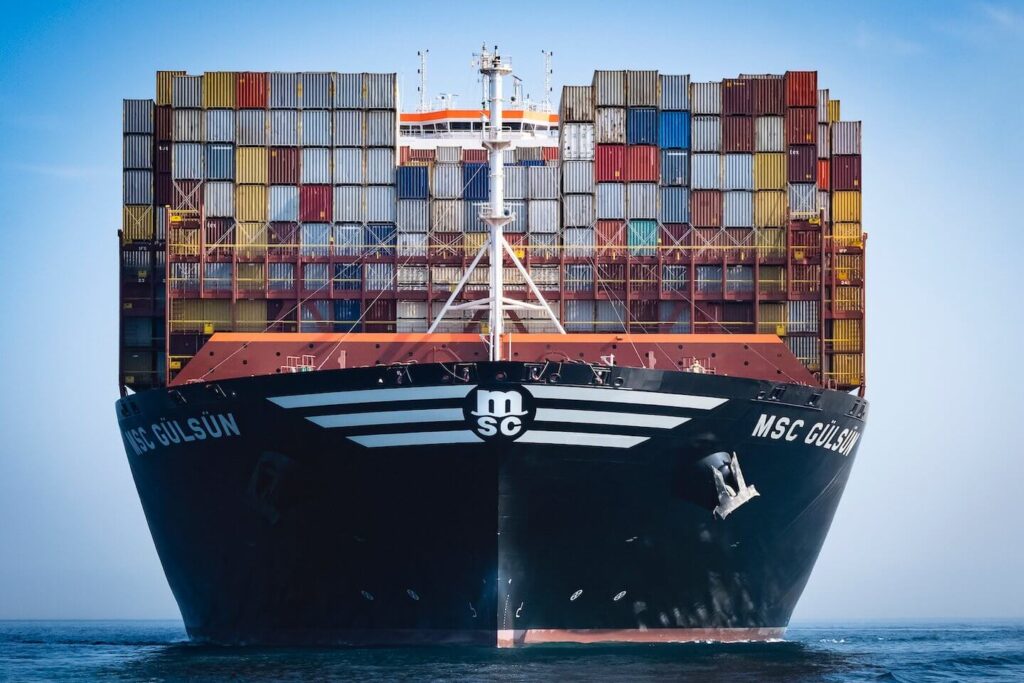
Obviously, to succeed in the marine transportation industry, you need a deep understanding of marine vehicles and vessels. This knowledge is essential in making informed decisions and ensuring the safe and efficient operation of marine transportation.
Types of Marine Vessels
When it comes to marine vessels, there are several different types that serve various purposes. Understanding these vessel types is crucial in determining the specific requirements and operations of each. Some of the key types of marine vessels include:
- Merchant Vessels – These are commercial ships used for transporting goods and sometimes passengers. They include bulk carriers, container ships, and tankers.
- Passenger Vessels – These are vessels designed to transport passengers, such as ferries, cruise ships, and yachts.
- Offshore Support Vessels – These vessels provide support for offshore operations, including platform supply vessels, anchor handling tug supply vessels, and crew boats.
- Fishing Vessels – These are used for commercial fishing, including trawlers, longliners, and factory ships.
- Warships – These are military vessels designed for combat, including aircraft carriers, destroyers, and submarines.
Knowing the specific features and operations of each type of vessel is crucial in determining the suitable career path within marine transportation.
Technology used in Marine Vessels
Advancements in technology have significantly impacted marine vessels, leading to safer and more efficient operations. From GPS navigation and radar systems to advanced engine propulsion and communication devices, technology plays a vital role in the modern marine transportation industry. Understanding and adapting to these technological advancements is crucial to staying competitive and ensuring the safety of marine transportation operations.
The Marine Transportation Industry: An Overview
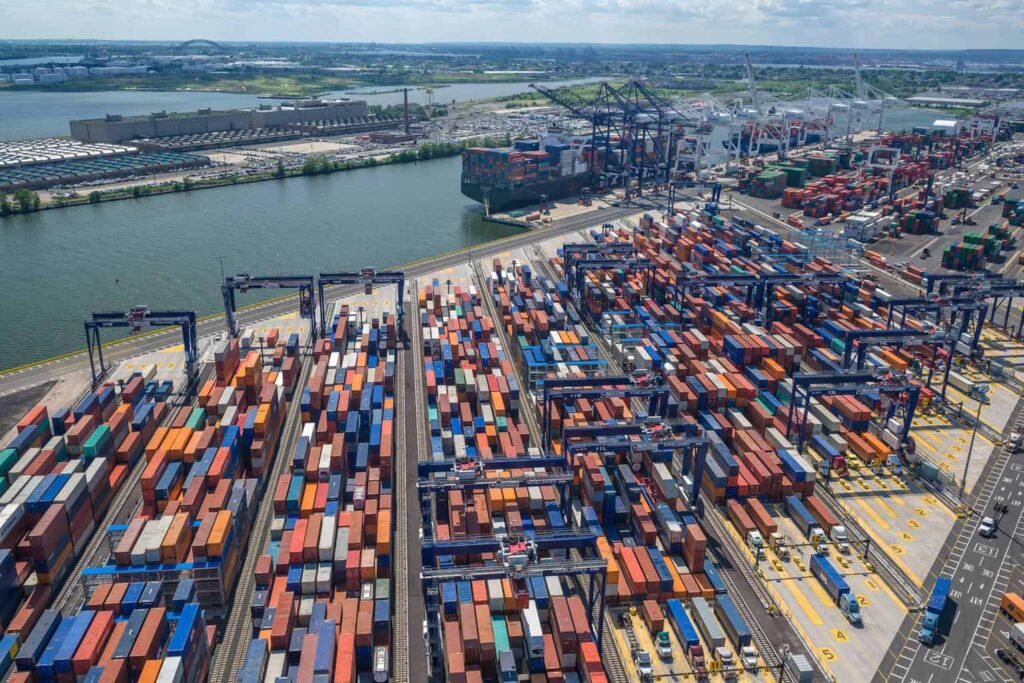
After decades of growth and development, the marine transportation industry has emerged as a critical component of global trade and commerce. This sector encompasses the movement of goods and people over water, including shipping, ferry services, cruise lines, and offshore operations. As you consider a career in marine transportation, it’s essential to familiarize yourself with the industry’s landscape, key players, economic impact, and regulatory aspects to make an informed decision about pursuing this career path.
Key Players in the Marine Transportation Industry
The marine transportation industry is a complex network of companies and organizations that play vital roles in facilitating the movement of goods and passengers across oceans, rivers, and other waterways. Major players in the industry include shipping companies, port authorities, marine terminal operators, naval architects, marine engineers, and logistics providers. Shipping companies are the backbone of the industry, operating vessels that transport goods across the world’s oceans and waterways. Port authorities oversee the management and operations of ports, ensuring the efficient flow of cargo and vessels. Marine terminal operators handle the loading and unloading of cargo at port facilities, while naval architects and marine engineers design and build the vessels that move goods and people. Logistics providers are responsible for coordinating the transportation of goods from origin to destination, utilizing a range of modes, including marine transportation.
Economic Impact of Marine Transportation
The economic impact of marine transportation cannot be overstated, as it serves as a linchpin of global trade and commerce. Maritime shipping accounts for the vast majority of the world’s traded goods, with over 90% of global trade being carried by sea. The industry is a significant source of employment and economic activity, supporting millions of jobs worldwide and contributing billions of dollars to the global economy. Marine transportation also enables the efficient movement of raw materials, finished goods, and energy resources, playing a crucial role in sustaining global supply chains and driving economic development. However, it is not without its challenges, including environmental concerns, geopolitical risks, and economic volatility.
Regulatory Aspects of Marine Transportation
Given the international nature of marine transportation, the industry is subject to a comprehensive regulatory framework designed to ensure safety, security, and environmental protection. International maritime regulations set standards for vessel construction, crew training, operational practices, and pollution prevention. National and regional authorities also play a critical role in enforcing regulations and overseeing the safe and efficient operation of marine transportation activities within their jurisdictions. This regulatory environment is designed to mitigate risks and safeguard the marine environment, ensuring safe and sustainable maritime operations.
Career Opportunities in Marine Transportation
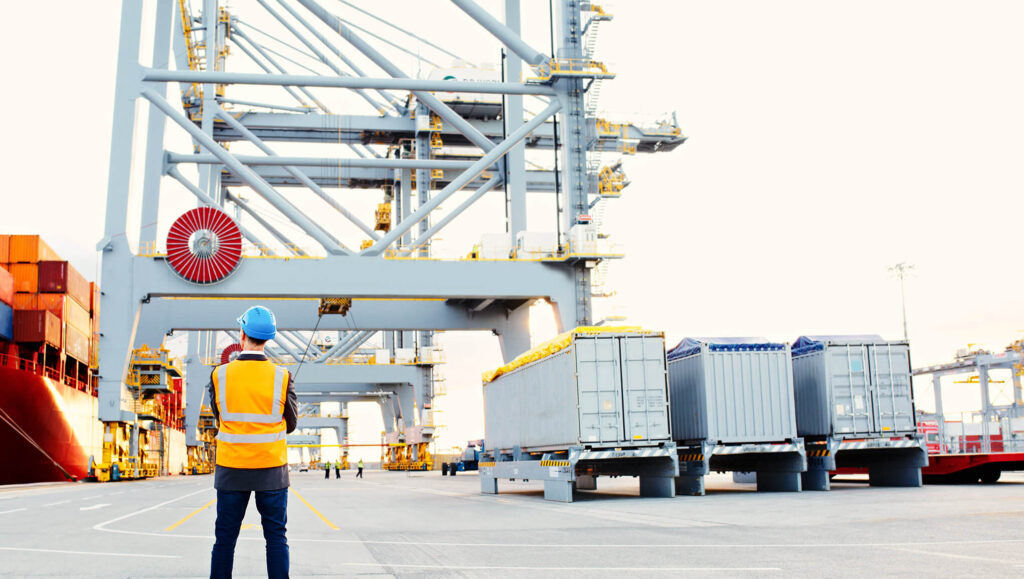
Despite the challenges that come with a career in marine transportation, there are several promising opportunities for those who are passionate about working on the water. According to a recent article from Skillabilly, a career in marine transportation can be a rewarding path for those who seek adventure and enjoy working in a dynamic environment.
Types of Job Roles in Marine Transportation
When pursuing a career in marine transportation, you’ll find numerous job roles that suit your interests and skills. Whether you are interested in working on a cruise ship, container ship, or tanker, there are various opportunities available in this field. Some of the primary job roles in marine transportation include:
- Captain/Pilot: Responsible for the safe navigation and overall operation of the vessel.
- Deck Officer: Assist the captain and oversee the deck crew in the operation of the vessel.
- Engineer: Responsible for the maintenance and operation of the ship’s engines and mechanical systems.
- Marine Surveyor: Inspect and assess the condition of vessels, cargoes, and offshore installations.
- Harbor Pilot: Guide ships in and out of ports or other confined waters.
After gaining experience in the industry, you may have the opportunity to advance to more senior roles such as fleet manager, port captain, or marine superintendent.
Skills and Qualifications Required
When considering a career in marine transportation, it’s essential to possess certain skills and qualifications to succeed in this industry. Good communication, problem-solving, and leadership skills are crucial for effectively managing the vessel and crew. Additionally, you must have a strong understanding of maritime laws and regulations and be able to adapt to changing weather conditions and unforeseen challenges while at sea.
Moreover, obtaining the necessary qualifications, such as a Merchant Mariner Credential (MMC) and various endorsements, is essential for pursuing a career in marine transportation. Additionally, completing relevant training and obtaining certifications from maritime academies or institutes will significantly enhance your career prospects in this field.
Education and Training for a Marine Transportation Career

However, before embarking on a career in marine transportation, it is important to understand the educational and training requirements necessary for success in this field. Obtaining the appropriate education and training is crucial to ensure you have the necessary skills and knowledge to excel in the industry. The following information will guide you through the academic and practical aspects of preparing for a career in marine transportation.
Academic Requirements and Specialized Courses
Academic requirements for a career in marine transportation typically include a high school diploma or equivalent. Additionally, many employers prefer candidates who have completed specialized courses or obtained a degree in marine transportation, maritime studies, or a related field. These programs often provide a comprehensive understanding of maritime operations, navigation, marine engineering, and maritime law. By completing specialized courses or obtaining a degree in these areas, you will gain a deep understanding of the complex and highly technical aspects of marine transportation, which will set you apart from other candidates and equip you with the knowledge needed to succeed in this industry.
Internships and On-the-Job Training Opportunities
Internships and on-the-job training opportunities play a crucial role in preparing for a career in marine transportation. Engaging in internships or apprenticeships with maritime companies, shipping firms, or government agencies can provide you with invaluable hands-on experience. These opportunities allow you to apply the knowledge gained through your academic studies to real-world scenarios, and also provide you with the opportunity to observe and learn from experienced professionals in the industry. Additionally, on-the-job training programs offered by maritime companies can further enhance your skills and knowledge by providing you with practical experience on vessels and in various operational roles. By actively seeking out internships and on-the-job training opportunities, you can gain a significant advantage in preparing for a successful career in marine transportation.
Pros and Cons of a Career in Marine Transportation
To help you make an informed decision about pursuing a career in marine transportation, it’s important to consider the pros and cons. Here is a breakdown of the advantages and disadvantages of working in this industry:
Pros
- Opportunities for travel and exploration
- Potential for high salary and career advancement
- Job security and stability in a growing industry
- Opportunity to work with cutting-edge technology
- Adventurous and challenging work environment
- Possibility of gaining leadership and teamwork skills
Cons
- Extended periods away from home
- Highly demanding and stressful work environment
- Exposure to harsh weather conditions and physical labor
- Isolation and limited social interaction while at sea
- Strict regulations and safety protocols
- Potential for long working hours and irregular schedules
Potential Benefits of a Marine Transportation Career
If you are considering a career in marine transportation, there are several potential benefits to keep in mind. Firstly, this field offers you the chance to travel and explore new places, providing a sense of adventure and diversity in your work. Additionally, a career in marine transportation can lead to high earning potential and opportunities for career advancement. With job stability in a growing industry, you can find a sense of security in your professional future. Moreover, you will have the chance to work with cutting-edge technology, gaining valuable skills and knowledge in this area.
Challenges and Difficulties in Marine Transportation
Despite the many benefits, it’s important to acknowledge the challenges and difficulties that come with a career in marine transportation. You will be faced with extended periods away from home, navigating through harsh weather conditions, and exposure to physical labor. Additionally, the demands of the job can be highly stressful, and the strict regulations and safety protocols in place can add to the pressure. It’s essential to consider these factors when making a decision about pursuing a career in marine transportation.
Inspiring Success Stories in Marine Transportation
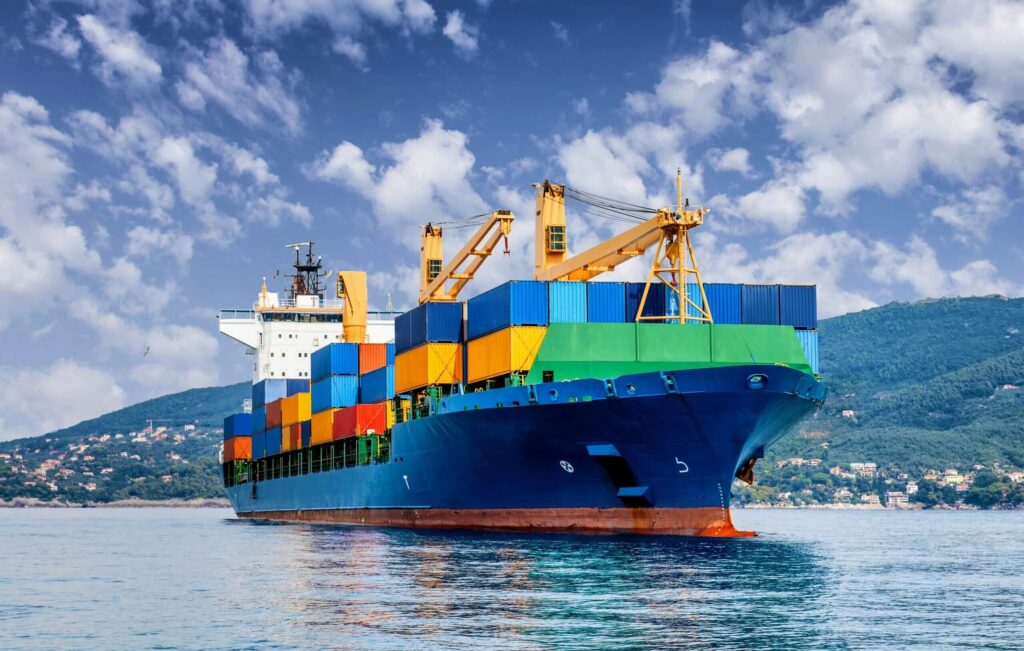
Lastly, let’s look at some inspiring success stories in the marine transportation industry. These individuals have navigated their way to success and have achieved remarkable milestones in their careers. Their journeys are proof that a career in marine transportation can be not only rewarding but also full of opportunities for growth and achievement.
Successful Individuals in the Marine Transportation Industry
One inspiring success story in the marine transportation industry is that of Captain Jessica Waters. With over 15 years of experience at sea, Captain Waters has navigated some of the most challenging waters around the world. Starting as a deckhand, she worked her way up to become the first female captain of a large cargo vessel in her company. Her dedication, leadership, and expertise have earned her the respect of her peers and set a powerful example for aspiring maritime professionals.
Growth and Achievement in Marine Transportation careers
Many individuals in the marine transportation industry have achieved remarkable growth in their careers. With opportunities for advancement and skill development, professionals in this field have the potential to reach the highest ranks within maritime organizations. From becoming a captain of a vessel to managing entire fleets, the possibilities for growth are substantial. Furthermore, the sense of achievement that comes with safely navigating through challenging conditions and delivering cargo on time is unparalleled. The industry offers a dynamic and rewarding career path for those who are passionate about the sea and possess the determination to succeed.
The Benefits of a Career in Marine Transportation
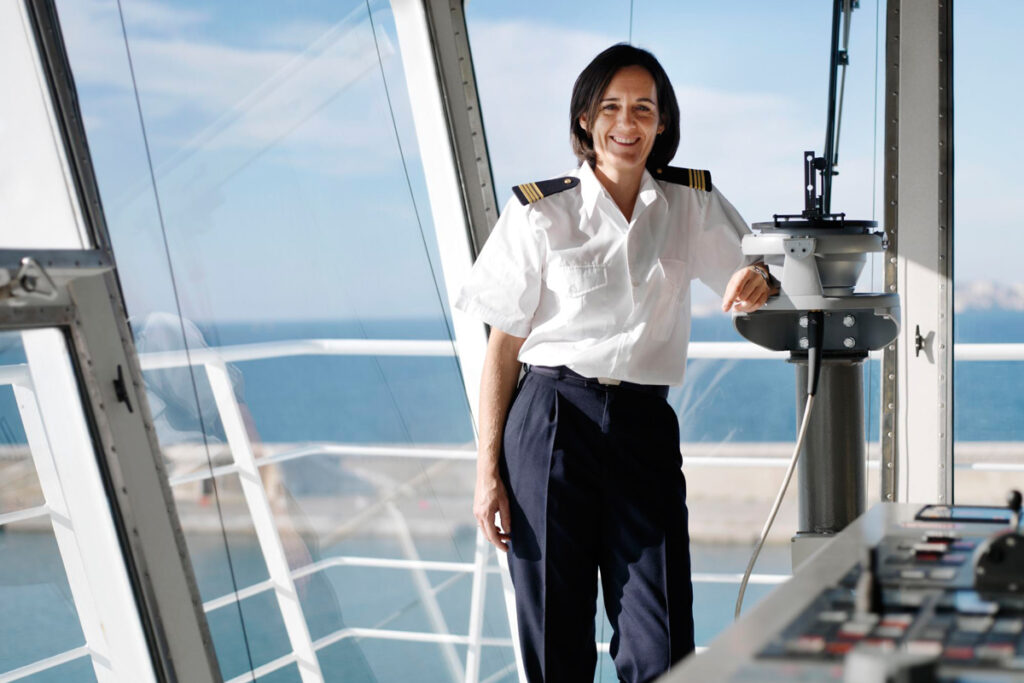
The field of marine transportation offers a wide range of benefits and opportunities for individuals who are interested in working on the water. With a variety of career paths available, from working on commercial vessels to piloting cruise ships or managing logistics for shipping companies, there is no shortage of options for those looking to pursue a career in this industry. Not only does marine transportation provide a stable and rewarding career path, but it also offers the chance to travel the world, work in a dynamic environment, and contribute to a vital global industry. With the right education and training, you can find success and fulfillment in the field of marine transportation.
By considering a career in marine transportation, you are positioning yourself for a stable and lucrative career in an industry that will always be in demand. Your skills and expertise will be valued, and you will have the opportunity to work in a variety of roles, from navigating ships to managing complex logistical operations. With the right education and training, you can set yourself up for a successful and rewarding career in marine transportation.
People also asks – Is Marine Transportation a Good Career Path?
What is Marine Transportation?
Marine transportation involves the movement of people and goods over bodies of water using ships and other watercraft.
What career opportunities are available in Marine Transportation?
Career paths in marine transportation include ship captains, mates, pilots, and deck officers, as well as roles in maritime logistics and management.
Is Marine Transportation a good career path?
Yes, Marine Transportation can be a good career path for those who are drawn to the sea, enjoy travel, and are interested in the global shipping industry. It offers opportunities for adventure, competitive salaries, and room for career growth.
What skills are required for a career in Marine Transportation?
Skills required for a career in Marine Transportation include navigation, maritime law, ship handling, crisis management, and a strong understanding of global shipping regulations.
What are the challenges of a career in Marine Transportation?
Challenges in Marine Transportation may include long periods away from home, exposure to harsh weather conditions, and the need to adapt to different cultures and languages in diverse port locations.

